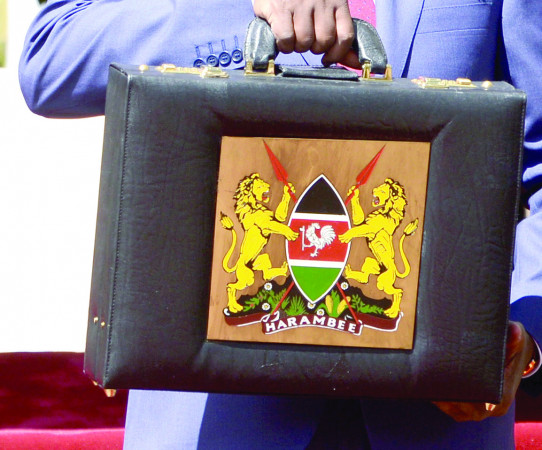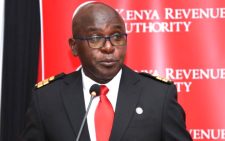Uhuru’s final budget falls short of expectations, say economists

Treasury Cabinet Secretary Ukur Yatani’s Sh3.3 trillion exit Budget under the current administration failed short of Kenyans’ expectations, focusing on grand projects under the Big Four Agenda despite calls to address the rising cost of living.
Billed as President Uhuru Kenyatta’s legacy Budget, Yatani’s speech, according to economists, largely overlooked pressing problems such as the spiralling cost of food items, worrying unemployment levels and choking taxation to make room for politicians’ retirement goodies.
“To support the implementation of the projects and programmes under the ‘Big Four’ Agenda, I have proposed a total of Sh146.8 billion,” declared Yatani, an allocation he maintained would go a long way in fulfilling President Kenyatta’s legacy projects unveiled in 2017 when he assumed his second and last term in office.
Yatani, who read the 2022/23 Budget in a ritual that came place two months early as a result of the August 9 General Election, yesterday steered clear of offering undeviating solutions to the high cost of living among Kenyans – a status quo that has been compounded by delayed rains in most parts of the country.
Instead, most of the allocation was absorbed by roads and infrastructure projects with the ongoing Big Four projects namely; housing, manufacturing, food security and universal healthcare gobbling a huge chunk of the allocation.
Education, infrastructure, security and health sectors topped Treasury’s priority list, accounting for more than one-third of the total Sh3.31 trillion Budget read by the former Labour minister who was appointed to the role in 2019 – initially in acting capacity before being confirmed in January 2020.
While making his presentation before the National Assembly and Senate, Yatani insisted the government had maintained its development and recurrent expenditure targets amid a tough economic environment.
External lenders
Treasury targets to raise an astounding Sh2.14 trillion in taxes and then turn to domestic and external lenders to plug the deficit by borrowing Sh846.1 billion.
Education and security sectors got an allocation of Sh544.4 billion and Sh317.8 billion, respectively. The security budget will be applied to support operations of the National Police Service, Defence and National Intelligence Service.
Out of the proposed allocation in the education sector, Sh12 billion will cater for free primary education, while Sh2.5 billion will be spent to recruit new teachers through the Teachers Service Commission and Sh64.4 billion for free day secondary education including insurance under NHIF for secondary school students.
A further Sh5 billion was allocated for examinations fee waiver for Grade Six, Class Eight and Form Four candidates with Sh1.96 billion set aside for the school feeding programme.
Unsurprisingly, an exorbitant portion of Sh44.6 billion was allocated towards the General Election and operations of the electoral body, IEBC.
“In order to facilitate the 2022 General Election, we allocated Sh22.9 billion in the current FY 2021/22 and propose a further allocation of Sh21.7 billion in the FY 2022/23 to the Independent Electoral and Boundaries Commission,” said Yatani.
Expenditure towards drought resilience and sustainable livelihood plan, on the other hand, benefitted from a paltry Sh178 million meant to address the extenuating drought emergencies in a country that experiences severe dry season every two to three years.
Since September last year, for instance, much of Kenya’s northern region has received less than 30 per cent of normal rainfall, which has doubled in frequency in that region since 1999 due to climate change, signalling a humanitarian crisis.
Coming at a time Kenyans are smarting from effects of the Covid-19 pandemic, the 2022/23 Budget elicited sundry reactions from the country’s political factions who expressed divergent views.
While those from Azimio La Umoja side led by presidential aspirant Raila Odinga welcomed the statement, their counterparts from Kenya Kwanza headed by Deputy President William Ruto termed it a burden to the common Kenyan. Kikuyu MP Kimani Ichung’wa dismissed the proposal by Yatani to raise Sh2.4 trillion through taxes as unrealistic during an election year.
Key components
“The CS is just but over-ambitious, you cannot raise Sh2.4 trillion during this period when everything is centred on politics. These are unrealistic revenue estimates,” Ichung’wa said.
In his speech, Yatani allocated Sh46.8 billion to finance agriculture as one of the key components of the Big Four Agenda. The new allocation is over and above Sh3 billion released last week to mitigate ongoing drought.
However, experts criticised the allocation, saying it is far below the 2003 Maputo Declaration on Agriculture and Food Security that advocated the commitment of at least 10 per cent of the national budget to agriculture development by African governments.
Equally, it was a fiscal plan that most economic experts felt did little to nothing in addressing a deranged tax system that is currently hurting individuals and small businesses alike.
“The tax measures are the crux of the moment. For one, Kenyans do not deserve any excise tax at a time they are suffering. But the introduction of a requirement to deposit of 50 per cent of the disputed tax revenue in a special account at the Central Bank of Kenya is in bad taste,” said Michael Mburugu, partner at PFK Consulting.
The concerns were echoed by Francis Kamau, a partner at Ernst & Young, who said: “It is big and bad. This will see a lot of people shutting down businesses. As for the other tax measures, the devil is in the detail. Let us wait and see what happens.”







